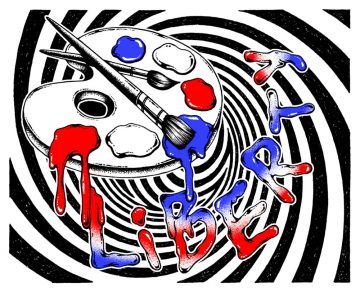Rachel Wetzler in The Baffler:
 THE CATO INSTITUTE, “a public policy research organization dedicated to the principles of individual liberty, limited government, free markets, and peace,” was founded in 1977 by the Koch brothers, the anarcho-capitalist economist Murray Rothbard, and former Libertarian Party national chair Ed Crane. At the time, libertarianism was still considered a fringe ideology for paranoid California eccentrics, derided even by one of their own patron saints, Ayn Rand, as a bunch of unserious “hippies of the right.” In order to bring Austrian economic theory and “minarchism” into the political mainstream, libertarianism needed a rebrand; the answer was naturally a Washington think tank, where its vision of a world of unfettered capitalist exchange could be tidily packaged into incremental policy proposals and fed to right-wing legislators.
THE CATO INSTITUTE, “a public policy research organization dedicated to the principles of individual liberty, limited government, free markets, and peace,” was founded in 1977 by the Koch brothers, the anarcho-capitalist economist Murray Rothbard, and former Libertarian Party national chair Ed Crane. At the time, libertarianism was still considered a fringe ideology for paranoid California eccentrics, derided even by one of their own patron saints, Ayn Rand, as a bunch of unserious “hippies of the right.” In order to bring Austrian economic theory and “minarchism” into the political mainstream, libertarianism needed a rebrand; the answer was naturally a Washington think tank, where its vision of a world of unfettered capitalist exchange could be tidily packaged into incremental policy proposals and fed to right-wing legislators.
Though Cato rejects the label “right-wing,” loudly proclaiming its independence from any political party and its commitment to fighting all efforts to expand state power, whether it comes in the form of Obamacare or the Iraq War, its relationship with the GOP has largely been more symbiotic than combative. Republicans can forgive Cato’s advocacy for, say, the decriminalization of drugs as a naïve and misplaced ideological rigidity because it comes with an economic agenda they can get behind: drastic tax cuts, the privatization of virtually all social services, and the elimination of anything that might get in the way of free trade, from environmental regulations to child labor laws. Cato denies the gravity of climate change (which it dismisses as pseudoscientific alarmism), believes in the right of business owners to discriminate on the basis of race, and ardently defends corporate personhood (“So What if Corporations Aren’t People?” reads the inadvertently hilarious title of a law review paper by Cato legal scholar Ilya Shapiro in support of the Citizens United decision).
More here.
